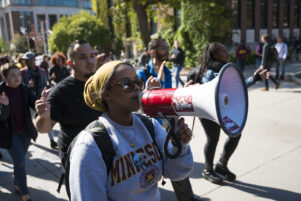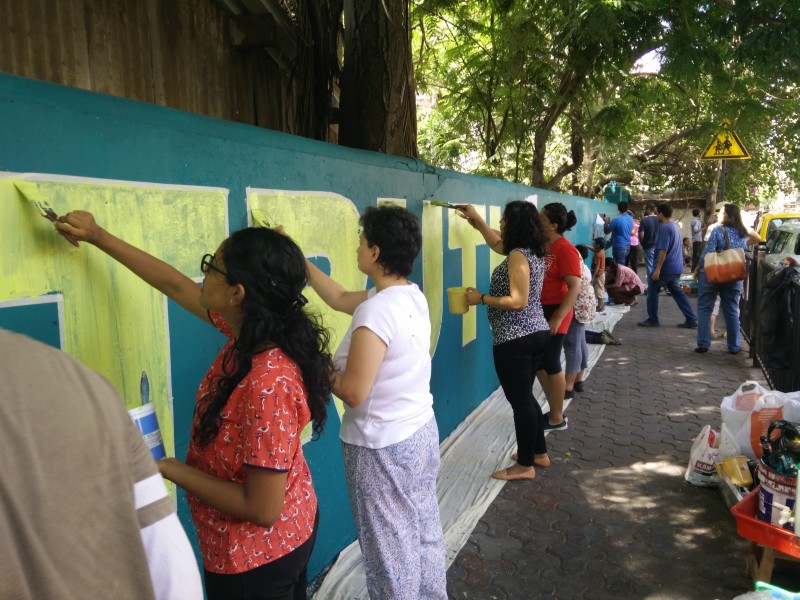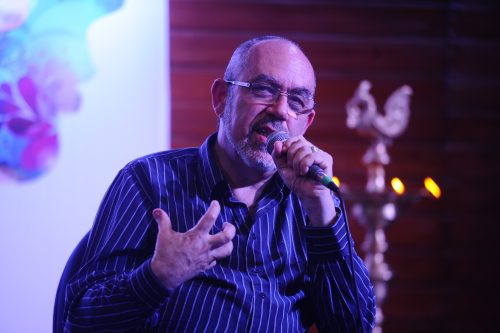What Can We Do To Decrease Polarization?
Article By Sabine Leitner
 The recent atrocities in the Middle East and the subsequent actions, reactions, comments, discussions, and demonstrations around the world have highlighted again how quickly we can become polarized in our opinions today. It is like a chain reaction: the moment one person starts to take sides for who is more deserving of sympathy and support, others feel that they have to do the same; each fact and/or argument on the one side has to be countered by a fact/argument on the other side (if only for ‘balance’) and, before we know it, we feel separated from each other and negative feelings start building up within.
The recent atrocities in the Middle East and the subsequent actions, reactions, comments, discussions, and demonstrations around the world have highlighted again how quickly we can become polarized in our opinions today. It is like a chain reaction: the moment one person starts to take sides for who is more deserving of sympathy and support, others feel that they have to do the same; each fact and/or argument on the one side has to be countered by a fact/argument on the other side (if only for ‘balance’) and, before we know it, we feel separated from each other and negative feelings start building up within.
If a conflict, that was originally only between two parties, amasses more and more partisans on either side, it will not only get bigger and bigger but also become like a vortex that drags many things down with it. This can lead to deeply polarized communities as well as world wars.
The fact that polarization is detrimental to our societies and democracies has been well researched and documented. The greater the polarization, the more difficult it is to create consensus. Without consensus, necessary reforms are impossible. Polarization also destabilizes our institutions and undermines democracy because their legitimacy depends on broad public consensus. In society, polarization generates an ‘us and them’ mentality and can poison everyday interactions and relationships. To give one example: apparently, in Turkey, almost eight out of ten people would not want their daughter to marry someone who votes for the party they most dislike. And nearly three-quarters would not even want to do business with such a person.
Of course, it is crucial for a healthy democracy to have a wide range of views and robust debates. But there is an important difference between a healthy spread of divergent views and outright hostility between antagonistic groups, which paves the way for violence, radicalization and extremism. Once a society has become deeply divided, it is very difficult to heal.
So, what can we do to avoid polarization? Is it better not to take sides? Is the only alternative to be morally neutral, indifferent, ‘lukewarm’, passive, a cowardly ‘fence-sitter’? Do we have to abandon our moral intuitions to avoid conflict at all costs?
Perhaps it would be beneficial to shift our focus more on how to achieve true and lasting peace, rather than on the ‘winning’ of that side we feel we need to support. Peace with justice is only possible if deep-seated mindsets, beliefs, and behaviours change. In general, no one changes if pushed into a corner. Imagine a broken-down marriage with a lot of resentment and hurt on both sides. Experience shows that taking sides does not help to change behaviour. In general, the person on the other side won’t feel understood, will only get more entrenched in their defensive position, and feel discriminated against. That is why a mediator must be neutral.
But neutrality is not an end in itself; it is a means to the end of being able to work with both sides and bring about change. However, one thing is professionally required neutrality, and another is our own moral intuition. Dag Hammarskjöld, the second Secretary-General of the United Nations (1953 – 1961) said in a seminal lecture in Oxford in 1961: “It may be true that in a very deep, human sense there is no neutral individual, because… everyone… has to have … ideas and ideals – things which are dear to him… But what I do claim is that even a man who is in that sense not neutral can very well undertake and carry through neutral [impartial] actions, because that is an act of integrity.”
Maybe this would be a way to counteract polarization. Not to abandon our inner sense of justice but yet be able to act with integrity and impartiality, in the name of what Dag Hammarskjöld called an ‘exclusively international’ spirit. To transcend our own opinions and to be able to empathise with the suffering on both sides, to honour the victims of violence on both sides, to see and acknowledge the underlying reasons for the escalating actions on both sides, without condoning violence on either side.
The potential for destructive polarization exists in all of us, individually and collectively. Prudence and empathy dictate that we should prevent escalations and the growth of hatred in our hearts that would linger for generations to come. Although most of us can’t do much at the moment to lessen the terrible conflicts that are going on in the world, we can all have a real impact when it comes to increasing or decreasing the growing polarizations and animosities in our own communities.
Image Credits: By Fibonaci Blue | Flickr | CC BY 2.0
The entity posting this article assumes the responsibility that images used in this article have the requisite permissionsImage References
By Fibonaci Blue | Flickr | CC BY 2.0
Permissions required for the publishing of this article have been obtained




What do you think?